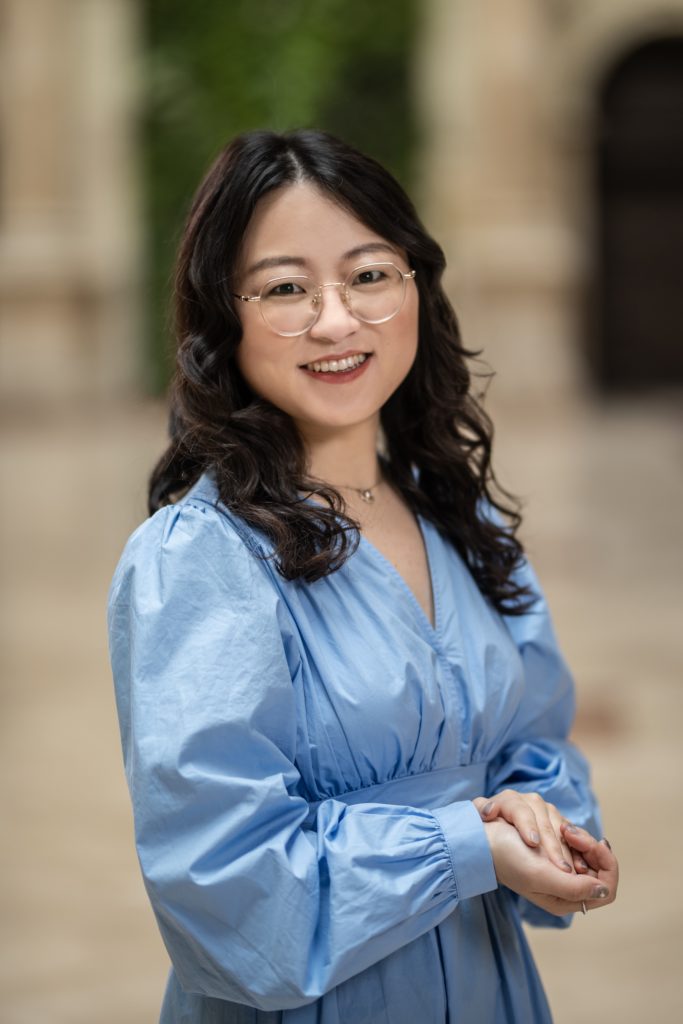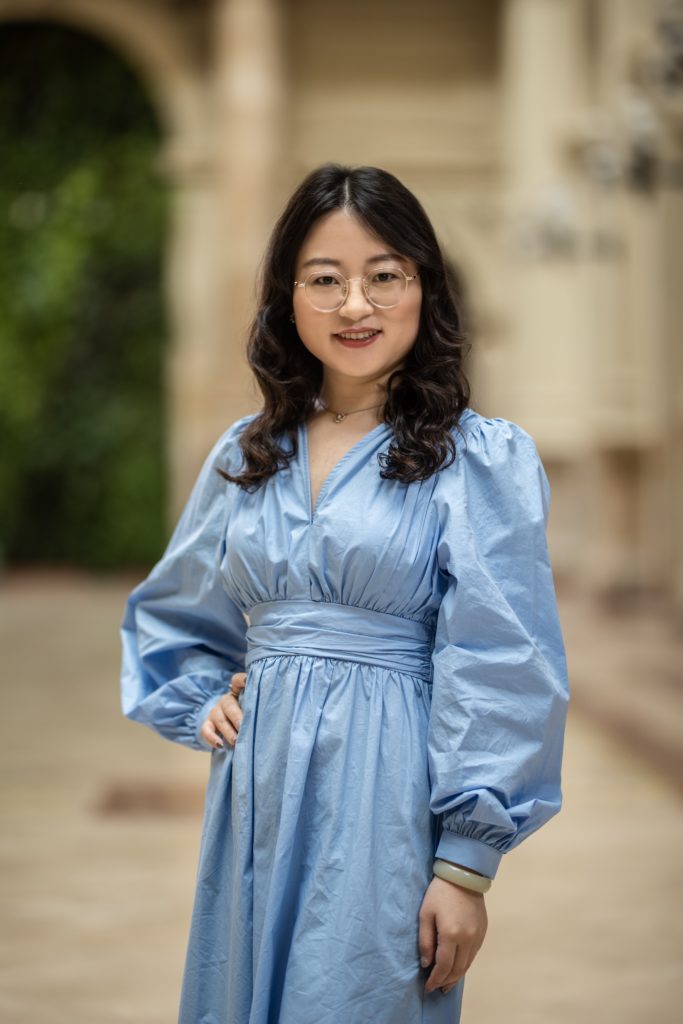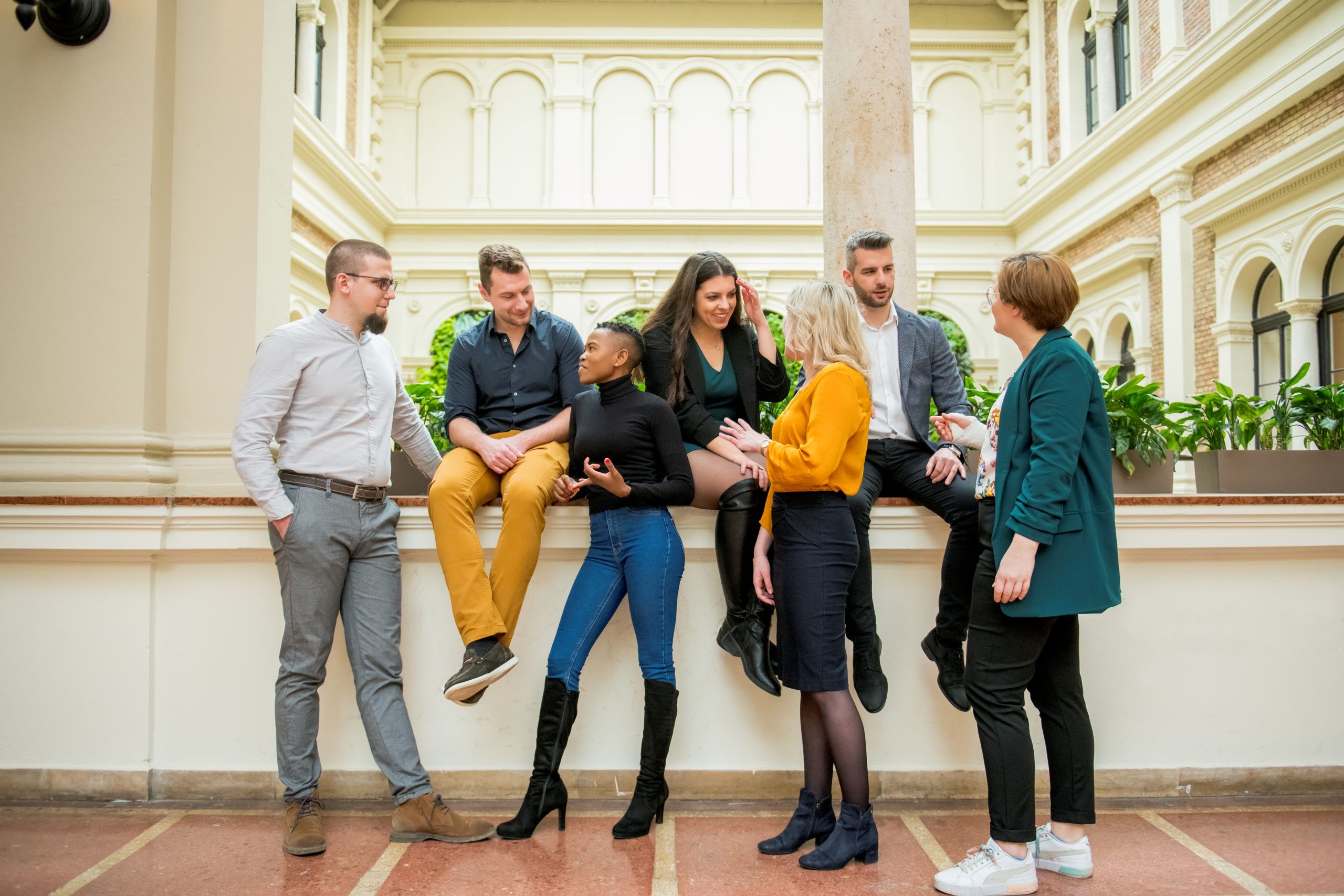“The past years were full of self-development” – The PhD story of Yuling Wei
Yuling Wei is in the third year of her PhD studies at the Business and Management Doctoral School of Corvinus University of Budapest.

Yuling comes from China but lives in Hungary since she started her bachelor’s studies in 2014. She earned her first degree at the University of Szeged and came to study marketing to Corvinus University. “I felt like I really like marketing and I want to explore more of it” – so she continued working with her master’s thesis supervisor on her PhD admission. “I thought that I would like to start the PhD in a familiar environment” – she told us about her decision.
The Stipendium Hungaricum scholarship was also an important reason for choosing Hungary, as it provides her financial support. “I don’t have to pay tuition fees and I also receive some money for my daily life.”
She considers Hungary a very nice country, where the living costs are lower compared to other European countries. “The education quality is quite good, and I enjoy living here, also because the country is a member of the EU.”
While working on her PhD, she also traveled a lot to other European countries to widen her perspectives and get to know international researchers in her innovative field.
From smart restaurants to FaceApp
During her master’s studies, she asked her supervisor to recommend her a conference that she can participate in. “I just wanted to try myself as a master’s student to know what the academic field looks like”. She has found a great topic from the list provided by the conference. She decided to do research on the fast-growing field of AI. First, her attention was attracted by a new phenomenon in the service industry. “There are many smart restaurants in China where even the chefs are robots. There are no human beings involved in the service process. This got me very interested in studying how the consumer’s attention is attracted”. She wanted to continue this topic during PhD, but her supervisor recommended to focus more on marketing and less on tourism.
“I have found another industry that interests me: color cosmetics.” She got inspiration from a friend who was involved in the same doctoral program as her. They have had conversations about her topic and how she could narrow it down. “At the beginning of the PhD, we feel like we have a lot of ideas, but we only need a very small field that we dig deep into”. She has also started to read a lot about AI in marketing and paid attention to international trends. “I have noticed that almost all of my Chinese friends use apps and filters to beautify their selfies and videos that they post in WeChat Moments”. Instagram also has the function to apply filters that digitally change the features of the face. Yuling has explored this technology through several applications, like the popular FaceApp and B612. “You might feel you are wearing a digital mask. The filter beautifies your face in two seconds” – she explains.
“This phenomenon already exists for years but we didn’t summarize it and named it. Researchers have only dealt with some smaller fields”. Therefore, Yuling has contributed to a framework that defines five types of Facial Enhancement Technology (FET), like face filters, virtual makeup and try-on, facial distortion, gender bender, and age manipulation. The technology is based on artificial intelligence (AI), virtual reality (VR), or augmented reality (AR) solutions and it allows users to alter their facial features in a virtual setting.
Convincing customers with the help of AI
As Yuling discovered, FET can also be used for marketing purposes. “I have started to explore this topic while the pandemic lasted, and the shops were closed. The retailers wanted to find new ways to promote and sell their products”. For example, the players in the cosmetics industry included several products in apps using FET. In this way, consumers can virtually try on products on their faces before purchasing them online. They can choose from different brands, colors, and product types on these platforms. These features were especially useful during lockdown but are still popular today because they save time for consumers and make more products achievable.
Yuling has tried all the apps to be able to focus on how the consumers feel after applying these digital masks (i.e., face lenses). “I have interviewed some users and it turned out that most people use the apps for fun”. Other reasons include that they want to attract attention in social media or dating apps and shape their self-image consciously. Previous studies mostly discussed the role of FET in users’ personal lives, such as gathering likes from followers on social media platforms, and possibly attracting the opposite gender, but she wants to explore a different perspective as well. “I am interested in how this technology can help professionals, especially white-collar workers, advance in their careers, especially market managers and cosmetics companies where employees must try these digital masks and use FET platforms to make marketing campaign” – Yuling explains. Now she focuses on the professional aspects of self-presentation and how the FET technology revolutionizes the cosmetics industry.
The power of community and thinking positively
Besides exploring this innovative topic, Yuling also had to complete courses in the first two years of the program. The community at the doctoral school and the Institute of Marketing and Communication Sciences supported her a lot. “There is a big group behind me” – she told us about some professors and other PhD students that she has collaborated with. “We solved difficulties together, discussed comments that we got from reviewers on our articles. We fight together”. For example, she worked together with a Polish researcher on her first paper. “If you want to publish in a reputable journal as a PhD student, you need help from people who already published in that field”. Therefore, she often contacts other researchers who are involved in the same field as her to get to know them, look for collaboration opportunities and improve her research skills in any way she can.
Despite all the support she receives from the university, she considers the PhD a very challenging journey. But she has a big dream that keeps her motivated and going. “I can’t give up because I want to be a professor in the future. If you want to become a better version of yourself, you must constantly strive to improve”. In the past few years, she has not only developed her academic writing and research skills, but also her personality.

“To be successful, you must be a very positive person. You need to always think positively and have hope in your heart, no matter how many mistakes you make or how many times you fail”
She would recommend the PhD to people who are ambitious and passionate about their work. She has learned to be her own boss and has overcome numerous challenges. “The past few years were full of self-development” – Yuling told us.
